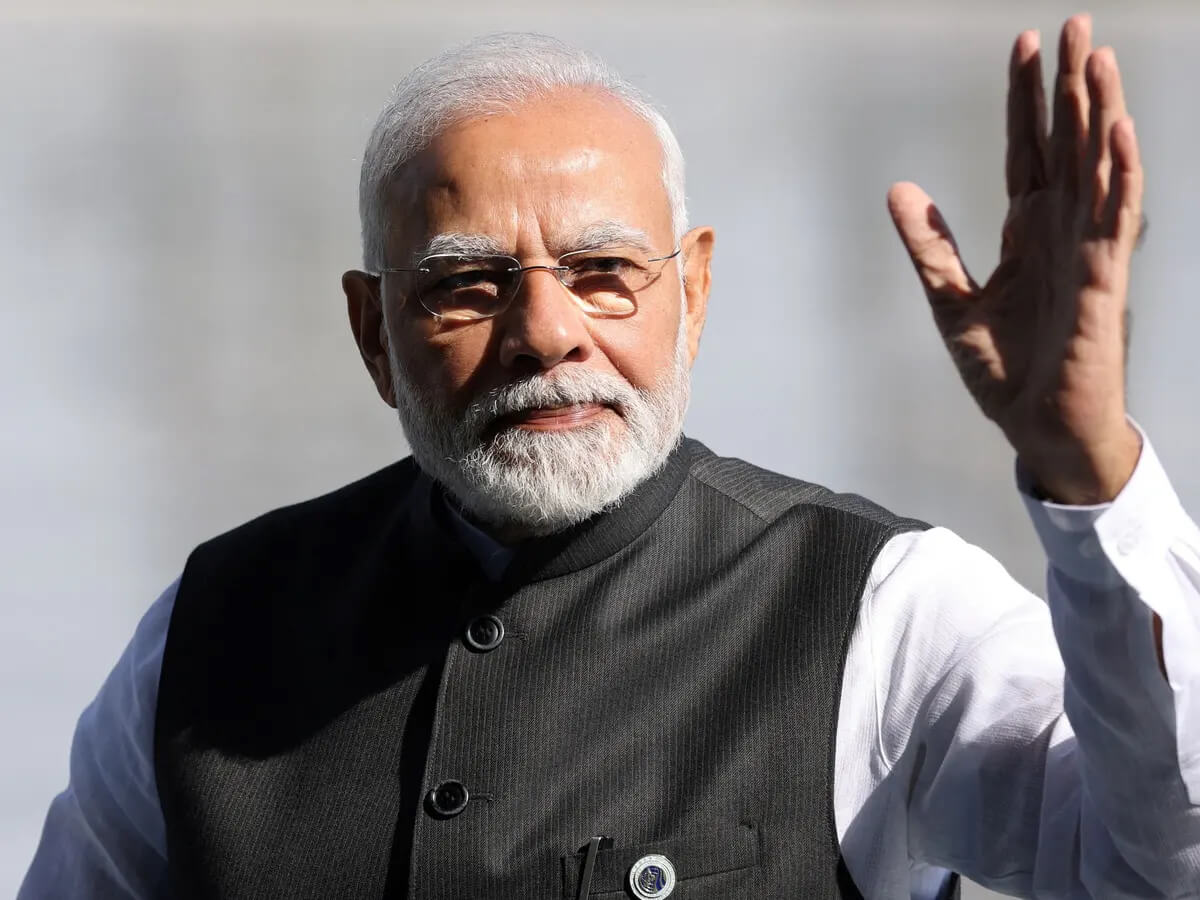Marking the International Day of Solidarity With the Palestinian People on Tuesday, Prime Minister (PM) Narendra Modi underscored India’s “unwavering support to the Palestinian cause” and its peoples’ demands for statehood.
He stressed that India has “always supported the Palestinian people in their pursuit of economic and social development” and called on Palestinian and Israeli officials to come to a “comprehensive and negotiated solution” that ensures “statehood, peace, and prosperity” for both countries.
Modi remarked that India and Palestine share a “common history,” citing various examples of how New Delhi has offered assistance, such as the India-Palestine Techno Park, the Palestine National Printing Press, and the construction of four schools. He also celebrated upcoming projects such as the Palestine Diplomatic Academy, Women Empowerment Centre, and a super speciality hospital.
Message of Hon'ble Prime Minister of India Shri Narendra Modi on the occasion of the International Day of Solidarity with the Palestinian people.#IndiaPalestine @MEAIndia@IndiaUNNewYork@PalestinePMO@MofaPPD @pmofa @WAFANewsEnglish @palestinetv95 pic.twitter.com/21hqbcozsj
— India in Palestine - الهند في فلسطين (@ROIRamallah) November 29, 2022
India has also provided aid to Palestinian refugees via the United Nations Relief and Works Agency (UNRWA), which relies on voluntary contributions. The relief fund was formed in 1949 and aids over 5.6 million Palestinian refugees registered with the organisation’s missions in Jordan, Lebanon, Syria, and the West Bank, which includes East Jerusalem and the Gaza Strip.
India contributed $2.5 million to the UNRWA in July and another $2.5 million in October. In total, $10 million to the fund from 2020 to 2022.
During Modi’s maiden visit to Palestine in 2018, he pledged to increase India’s annual contribution to the UNWRA from $1.25 million to $5 million. As a result, New Delhi has delivered $22.5 million as assistance to the war-torn country since 2018.
Friendship between India and Palestine has stood the test of time. The people of Palestine have shown remarkable courage in the face of several challenges. India will always support Palestine’s development journey.
— Narendra Modi (@narendramodi) February 10, 2018
Modi’s statement came on the International Day of Solidarity with the Palestinian People, which has been celebrated on 29 November every year since 1977 to mark the day that the General Assembly adopted the partition resolution in 1947.
India’s ties with Palestine began in 1974, when it became the first non-Arab country to recognise the Palestine Liberation Organisation. In 1996, it opened a representative office in Gaza, though it moved the facility to Ramallah in 2003.
Meanwhile, The PLO opened an office in New Delhi in 1975 and has enjoyed full diplomatic status since 1980.
In 1975, India even supported the UN General Assembly Resolution that “determined that Zionism is a form of racism and racial discrimination.”
More recently, in 2021, India’s erstwhile ambassador to the UN, TS Tirumurti, voiced support for the “just cause of Palestine” and a “two-state solution.” Tirumurti made the comments against the backdrop of the 11-day war in Gaza last May, during which over 200 Palestinians were killed, including more than 60 children.
I understand your need in retrospect to “justify” your behavior but I can’t understand why you told @ynetnews afterwards that the minister and I said on stage that there is similarity between our countries because “we fight a similar enemy and reside in a bad neighborhood”.
— Naor Gilon (@NaorGilon) November 29, 2022
Although India has maintained its support for a two-state solution, it has also enhanced ties with Israel since establishing full-fledged diplomatic relations with the country in 1992.
These ties were further enhanced after the Bharatiya Janata Party came to power in 2014, with PM Modi providing the impetus for greater economic ties, particularly in the defence sector.
In 2017, Prime Minister Narendra Modi became the first-ever Indian PM to visit Israel. However, in an effort to maintain friendly relations with both ties, he also visited Ramallah and held discussions with Palestinian Authority President Mahmoud Abbas.
Interestingly, Modi’s support for Palestine comes just days after Israeli filmmaker Nadav Lapid said at the International Film Festival of India that he was “disturbed and shocked” at the presentation of “The Kashmir Files” during the event.
The movie depicts the forced exodus of tens of thousands of Kashmiri Pandits from the Kashmir Valley in the 1990s due to the spread of radical Islamism and terrorist groups. It is estimated that at least 350 Kashmiri Hindus were killed during this period.
Lapid called the film “propaganda” and “vulgar.”
Pre-empting retaliation from the Indian government and public, Israeli Ambassador Naor Gilon released an “open letter” on Tuesday apologising for the inflammatory statement.
He said Lapid “should be ashamed” for his “insensitive and presumptuous” remarks, lamenting that the filmmaker had disrespected the “warm hospitality” and “generosity and friendship” offered by India.
Gilon expressed concern about the “implications” of Lapid’s comments but insisted that bilateral ties remain “strong and will survive the damage [Lapid] inflicted.

